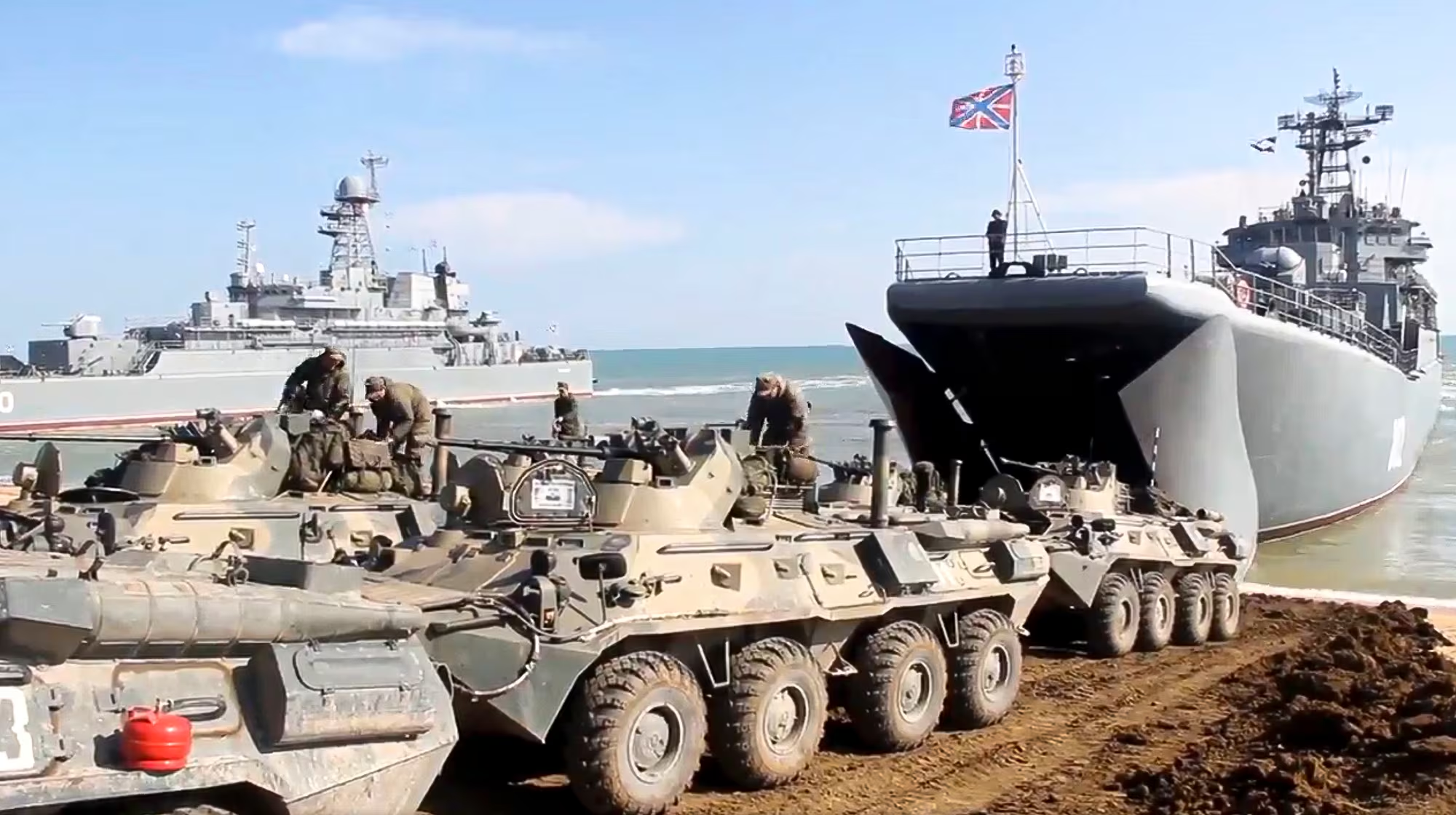KYIV, Ukraine ― Ukraine’s defense minister fired back Tuesday at Russian predictions that the U.S., in light of its rushed exit from Afghanistan, will eventually abandon Ukraine.
“I’m not going to compare relations between the U.S. and Ukraine with relations between the U.S. and Afghanistan,” Andriy Taran said. “Ukraine is a country that fights for its own independence and territorial integrity. We have no doubt of the support from our strategic partner.”
“The U.S. understands the importance of our fight, the fight of Ukraine for its independence, for the deterrence of Russian aggression,” he added.
Taran’s defiant comments came at a joint press conference with U.S. Defense Secretary Lloyd Austin, who was on his first trip to Europe since America exited Afghanistan and its U.S.-backed government folded to the Taliban.
Ukraine was the latest stop in Austin’s swing through the Black Sea region to reassure allies of the U.S. commitment to them. Austin voiced America’s “unwavering” support for Ukraine’s sovereignty and territorial integrity, said Russia is an “obstacle” to peace and met with Ukrainian President Volodymyr Zelenskyy.
“We call on Russia to end its occupation of Crimea, to stop perpetuating the war in eastern Ukraine and to end its destabilizing activities along Ukraine’s borders, and to halt its persistent cyber attacks and other malign activities against the United States and its partners,” Austin said.
European allies have criticized the U.S. departure from Afghanistan, and Russia’s Security Council Secretary Nikolai Patrushev assailed it in an interview with the Russian newspaper Izvestia in August.
Patrushev suggested “the ousted pro-American regime in Kabul” was not “saved by the fact that Afghanistan had major non-NATO U.S. ally status.”
“A similar situation awaits supporters of the American choice in Ukraine,” he added.
Ukraine is locked in a bitter tug-of-war with Russia, which in 2014 annexed the Crimean Peninsula from Ukraine and has since been backing a deadly separatist insurgency in eastern Ukraine.
The annexation and Moscow’s backing of rebels in the east of Ukraine, where more than 14,000 have been killed since 2014, plunged Russia’s relations with the West to post-Cold War lows. The tensions rose again this year after Russia increased troop numbers near its borders with Ukraine, including in Crimea, eliciting international outrage.
Zelenskyy has looked to U.S. President Joe Biden for increased military aid and backing for his country’s bid for NATO membership, which Russia adamantly opposes. The U.S. has given Ukraine weapons as well as a long to-do list of anti-corruption measures and other reforms.
On Tuesday, Austin and other Pentagon officials met with their Ukrainian counterparts to discuss security on the contested Black Sea and Ukraine’s implementation of defense reforms Austin and Taran agreed to when they met in Washington this summer.
RELATED

Though the Ukrainian government and some U.S. lawmakers want more American arms for Ukraine, Taran ― standing beside Austin ― praised the training and equipment it has received to date. Taran highlighted secure radios, counter-mortar radars and a U.S. commitment to provide armed patrol boats for Black Sea operations.
American military advisers are helping Ukraine reach NATO standards, but it’s a mutually beneficial relationship, according to Taran.
“We share our own experience of combat actions [against] the Russian Federation, because this experience, which Ukrainian armed forces have, no one else has,” he said.
Ukraine on Monday received its latest shipment of U.S. defense aid, which included radar surveillance equipment, precision ammunition and medical supplies, according to the Ukrainian Defense Ministry.
It’s part of the $60 million tranche Biden agreed to this summer in advance of Zelenskyy’s long sought visit to the White House. The U.S. has overall committed more than $400 million in military aid this year.
With reporting by the Associated Press.
Joe Gould was the senior Pentagon reporter for Defense News, covering the intersection of national security policy, politics and the defense industry. He had previously served as Congress reporter.





